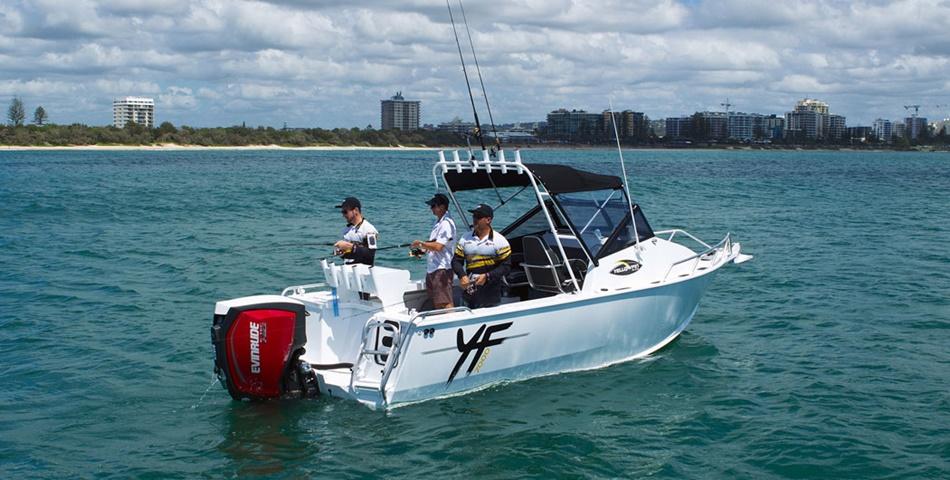
The main consideration between inshore and offshore fishing boats is how they handle the conditions that come with different water depths and fishing further from shore.
All fishing that happens on open waters can be classed as either inshore or offshore, with water less than 30 metres classified as inshore and deeper than 30 metres as offshore. The variation in depth brings with it a host of differences which make inshore and offshore very different experiences – and generally anything more than a few nautical miles out to sea is considered offshore fishing.
Different Types of Boats
If you’re planning on inshore fishing, there is a wide range of boats that will suit being closer to shore, just off our beaches or in rivers, lakes or estuaries. Smaller boats and runabouts that are less heavy duty, or even canoes and kayaks, are all suitable. The shallow depth means conditions are going to be much more manageable, which can make it easier to nip out for a quick fish instead of having to prepare extensively and head miles out to sea.
When it comes to offshore fishing, your boat needs to be able to handle often rougher conditions which can be better suited to larger boats like the 7 to 7.6m Yellowfin Southerner Hard Top, or the Cruisecraft Explorer 720 Hard Top. In addition to potentially bigger swells, with offshore fishing it can often take hours to get to your destination so your boat needs to be comfortable enough to spend the better part of a day on.
Weather concerns
While it’s always important to check the weather when you're fishing on open waters, with inshore fishing if an unexpected storm comes along, getting to safety is often just a few minutes away. It's no trouble to nip back if things start getting ropey. When you're miles out to sea, however, it's not always as easy to quickly escape an incoming storm if it's taken you several hours to get to your fishing spot so it’s best to know what weather is coming your way and plan well ahead.
Appropriate Equipment
With deep sea offshore fishing, electronics like fish finders become increasingly necessary as fish become more spread out and potentially further from the surface. There are also different safety equipment requirements for offshore fishing - for example, if you're more than 2 nautical miles offshore, it's a legal requirement to have an EPIRB and marine radio on board.
Offshore fishing demands much heavier-duty equipment, as the fish you'll be aiming to catch there are generally stronger, faster and harder to reel in once hooked. This means using different kinds of lures and tackle as well as considering rod holders and storage for your fish to keep them fresh while you’re heading home.
Whether you’re planning on inshore or offshore fishing, it’s crucial that you choose a boat that meets your needs so you can better enjoy your time on the water!
Need some advice? With over 75 years of experience, Hunts Marine is a third generation, family-owned business with extensive experience in recreational boating. Find out more at HuntsMarine.com.au, give us a call on (02) 9546-1324 or get in touch with our team at Hunts Marine in Sydney, Wollongong or Batemans Bay.




